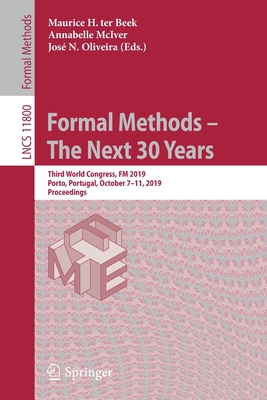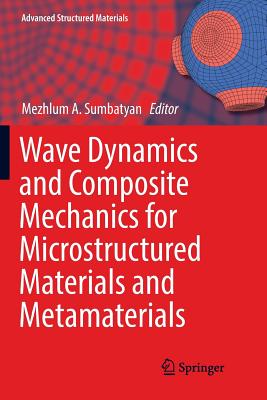This volume outlines a comprehensive journey into how geospatial artificial intelligence (GeoAI) is reshaping our understanding of people and places. Merging traditional geographic inquiry with AI technologies, it offers a holistic view of digital tools and advanced algorithms that redefine human geography. Across twenty‐eight chapters, the book chronicles the evolution of geographic thought into the GeoAI era. Innovative methodologies--from explainable spatial analysis and natural language processing to human-centered computer vision and high-performance computing--reveal new patterns and relationships beyond conventional approaches. Each contribution highlights both technical strides in data processing and enriched perspectives on cultural, economic, political, health, and urban studies. Showcasing diverse applications in disaster management, climate change adaptation, and urban planning, the volume demonstrates GeoAI's transformative potential. It also engages with ethical, sustainable, and social challenges, emphasizing that technological innovation must serve real-world impacts and inclusivity. Ideal for researchers, students, and practitioners alike, this volume invites you to explore new frontiers at the intersection of technology and human experience.
Dr. Xiao Huang is an Assistant Professor in the Department of Environmental Sciences at Emory University. His research expertise encompasses human-environment interaction, computational social sciences, urban informatics, disaster mapping and mitigation, GeoAI, and disaster remote sensing. He has contributed extensively to his field, authoring over 200 peer-reviewed journal articles, and over 20 book chapters, and playing a pivotal role in editing five books. He is among the World's Top 2% Scientists by Stanford/Elsevier's rankings. In his professional capacity, he serves as an Associate Editor for Computational Urban Science and is a member of the Editorial Board for several prestigious journals. His research has garnered significant attention and received coverage in renowned media outlets such as Nature News, NASA, NBC, and Fox. His work has attracted substantial funding from NSF, NASA, the Bill & Melinda Gates Foundation, the National Academies, and the Centers for Medicare and Medicaid Services.
Dr. Siqin Wang is an Associate Professor at the Spatial Sciences Institute, University of Southern California. She holds affiliated research roles as a Research Associate at Harvard Center for Geographic Analysis, an Adjunct Senior Lecturer at the Royal Melbourne Institute of Technology and the University of Queensland, Australia, and a JSPS Research Fellow at the University of Tokyo, Japan. She is a human geographer and spatial scientist, specializing in human-environment interactions and computational social science, where she has 80+ publications. Her work has earned international recognition via funds from Australia, the U.S., China, Japan, and Morocco; and awards including the 2024 Geospatial World 50 Rising Stars, 2024 IGU- MGSC Excellent Young Scholar Award, and the 2021 Top 20 Global Frontier Technology Young Scientist Award. Her professional roles include serving as Associate Chair of the Spatial Data Lab at Harvard CGA, Vice Chair of the Young Scientist Innovation Network for the International Society for Digital Earth, and an editorial board member, guest editor, and peer reviewer for over 30 international journals.
Dr. Peter Kedron is an Associate Professor of Geography at the University of California Santa Barbara and the Associate Director of the Center for Spatial Studies and Data Science. His research develops and uses spatial analytical methods to explain geographic variation in social and ecological processes. His recent work focuses on the use of replication as a means of evaluating geographic research, and on developing statistical approaches to improve the accumulation of evidence collected from different locations. To date, he has authored over 55 peer-reviewed articles, given over 100 conference presentations and public talks, and supervised over 20 graduate students and post-doctoral scholars. He has been consistently funded by the National Science Foundation and appears in publications in top field journals in Geography, GIScience, and Regional Science.
Dr. John P. Wilson is a Professor of Sociology and Spatial Sciences in the Dana and David Dornsife College of Letters, Arts and Sciences at the University of Southern California where he directs the Spatial Sciences Institute and the Wilson Map Lab. He also holds appointments as Professor in the School of Architecture, in the Keck School of Medicine of USC's Department of Population and Public Health Sciences, and in the Viterbi School of Engineering's Departments of Computer Science and Civil and Environmental Engineering. He currently serves as Editor-in-Chief for Transactions in GIS and the UCGIS GIST Body of Knowledge project. His research focuses on the modeling of coupled human and environmental systems and makes extensive use of GIS, spatial analysis, and computer models. He has published numerous books and articles on these topics, including Spatial Data Science, Environmental Applications of Digital Terrain Modeling, and two edited volumes, i.e. Terrain Analysis: Principles and Applications and the Handbook of Geographic Information Science.
黃曉博士是埃默里大學環境科學系的助理教授。他的研究專長涵蓋人類與環境的互動、計算社會科學、城市資訊學、災害地圖製作與減災、GeoAI 以及災害遙感。他在其領域內做出了廣泛的貢獻,發表了超過 200 篇經過同行評審的期刊文章和 20 多篇書籍章節,並在編輯五本書籍中扮演了關鍵角色。他在史丹佛/愛思唯爾的排名中被評為全球前 2% 科學家之一。在專業職位上,他擔任《計算城市科學》的副編輯,並且是幾本知名期刊的編輯委員會成員。他的研究引起了廣泛的關注,並在《自然新聞》、《NASA》、《NBC》和《福克斯》等知名媒體上報導。他的工作吸引了來自 NSF、NASA、比爾和梅琳達·蓋茨基金會、國家科學院以及醫療保險和醫療補助服務中心的可觀資金支持。
王思琴博士是南加州大學空間科學研究所的副教授。她在哈佛地理分析中心擔任研究助理,在澳大利亞皇家墨爾本理工大學和昆士蘭大學擔任兼任高級講師,並在日本東京大學擔任 JSPS 研究員。她是一位人文地理學家和空間科學家,專注於人類與環境的互動和計算社會科學,擁有超過 80 篇的出版物。她的工作獲得了國際認可,獲得來自澳大利亞、美國、中國、日本和摩洛哥的資金支持;並獲得包括 2024 年地理空間世界 50 位新星、2024 年 IGU-MGSC 優秀青年學者獎和 2021 年全球前 20 位前沿科技青年科學家獎等獎項。她的專業角色包括擔任哈佛 CGA 空間數據實驗室的副主任、國際數位地球學會青年科學家創新網絡的副主席,以及超過 30 本國際期刊的編輯委員會成員、客座編輯和同行評審。
彼得·凱德隆博士是加州大學聖塔巴巴拉分校的地理學副教授,並擔任空間研究與數據科學中心的副主任。他的研究開發並使用空間分析方法來解釋社會和生態過程中的地理變異。他最近的工作專注於使用重複性作為評估地理研究的一種手段,並開發統計方法以改善從不同地點收集的證據的累積。迄今為止,他已發表超過 55 篇經過同行評審的文章,進行了超過 100 次的會議報告和公開演講,並指導了超過 20 名研究生和博士後學者。他持續獲得國家科學基金會的資助,並在地理學、GIScience 和區域科學的頂尖期刊上發表文章。
約翰·P·威爾遜博士是南加州大學達納與大衛·多恩斯費文學、藝術與科學學院的社會學與空間科學教授,並負責空間科學研究所和威爾遜地圖實驗室。他還在建築學院、南加州大學凱克醫學院公共衛生科學系以及維特比工程學院的計算機科學和土木環境工程系擔任教授。他目前擔任《GIS 交易》的主編以及 UCGIS GIST 知識體項目的主編。他的研究專注於耦合人類與環境系統的建模,並廣泛使用 GIS、空間分析和計算模型。他在這些主題上發表了多本書籍和文章,包括《空間數據科學》、《數位地形建模的環境應用》,以及兩本編輯卷,即《地形分析:原則與應用》和《地理信息科學手冊》。































